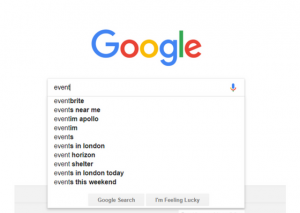Beginner’s Guide to Semantic Search
Businesses’ can’t afford to not understand what semantic search is and how to use it. If you want to know how to essentially get ‘free’ traffic to your website pages, then this article is one you must read.
Semantics are at the centre of every single search query answered on Google. When a consumer uses Google’s search box, the search engine uses a bunch of algorithms to find the most relevant results and displays them in ranking order with the most relevant results at the top.
Google’s Hummingbird update of 2015 pretty much transformed the way their search algorithm worked, with a greater emphasis on semantic search. It’s still relevant today, and urges businesses to put their target audience at the forefront of they mind: what do they want?
Businesses need to be SEO savvy. Understanding semantic search (and how to use it to benefit them) is still relevant in 2018 and it should be valued for future digital marketing strategies.
What is Semantic Search?
What does the user want to see?
“The branch of linguistics and logic concerned with meaning. The two main areas are logical semantics, concerned with matters such as sense and reference and presupposition and implication, and lexical semantics, concerned with the analysis of word meanings and relations between them.”- Google.
Without all the technical jargon – semantic search simply means to better understand the user intent and improve the search accuracy. It’s all about delivering the most relevant results in SERPs.
You just need to think like your target audience. Your website needs to be optimized with your target audience in mind, and to do so you need to think like them.
Let’s look at an example …
Even with such a generic term like ‘events’, you can see a whole host of information that Google has matched to my keyword. This is down to semantic search, Google has matched tonnes of information based on what they think I want to find.
What Does Semantic Search Have to do With SEO?
Just by looking at the example above, you can see how much information Google has to analyse to return the most relevant results based on my keyword. There’s a whole plethora of information out there, so its challenging for Google to always deliver the best information.
With this in mind, it’s vital businesses implemet semantics on to their own sites to reach their target audience on SERPs.
 How to Use Semantics on Your Website
How to Use Semantics on Your Website
Semantic search is really complex, but you don’t need to be an expert to alter your website with your audience in mind. There are a few simple things you can do to make your pages semantic-friendly.
Produce Targeted Content
The premise of Google is basic, to answer user’s search queries. It’s easy to get tied up with SEO and forget the basics – for your content to answer queries. Consider having a FAQ on your website, where you answer typical consumer questions. Consider the keywords your site targets and produce quality answer rich with relevant keywords and phrases.
Creating Quality Content
Of course, the relevancy of your content is a significant factor. We’ve banged on enough about the importance of quality content and how to feature the right keywords, you can catch up here:
- Is Blogging for Business Beneficial?
- Where to Place Keywords For Website Optimisation
- Content Writing: Top 7 Writing Tips
- A Beginner’s Guide to Content Marketing
Use Natural Language
Keep your content answer-based and structured clearly.
Content should make sense and logically flow. Every sentence should have a purpose, and directly answers what your target audience’s queries would typically be.
In a Nutshell
Semantic search centres around what the user wants to see.
Target your content specifically to search queries and provide the answers consumers are looking for. Once optimised, you should see improvements in your ranking in Google SERPs.
You’ll find our other blog posts on SEO and keywords useful to improve your rankings:
- – How to Choose the Right Keywords for Website Optimisation
- – Beginner’s Guide: SEO and Keywords
- – Where to Place Keywords For Website Optimisation
Why not check out our Digital Marketing Terms Glossary?
About the author:
Marie Harwood is a Digital Marketing Assistant at Different Gravy Digital, Hale, Cheshire.
Different Gravy Digital are a full service Digital Marketing Agency operating in the Hospitality & Leisure, Financial Services, Legal & Property sectors. Products and services range from; 3D & 360° Tours, Website Design & Build, Social Media, Video Production, Search Engine Optimisation (SEO), Content Creation, Email Marketing, Online Feedback / Review Systems and Paid Advertising (Google, Bing and Social Media).
Contact Details:
marie@differentgravydigital.co.uk
0161 706 000
120a Ashley Road, Hale, Altrincham, Cheshire, WA14 2UN
